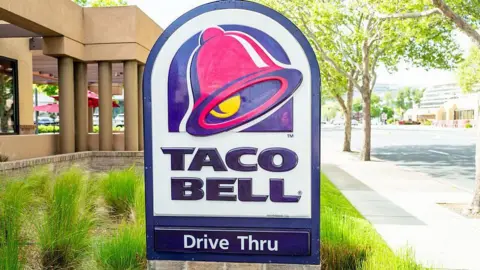It's lunchtime in the leafy grounds of the Kairos School of Inquiry in Randburg, South Africa. Dozens of children line up excitedly in front of a table laden with large pots of fresh, hot food. Today on the menu we have Kitchari: a mix of daal and rice, with tomato chutney, halloumi and salad, the school cook says, as she serves the students.
The school decided to introduce a mainly vegetarian food policy as part of an effort to buck a worrying global trend: for the first time, the number of overweight children has overtaken the number of underweight ones.
The UN says the number of overweight and obese teenagers around the world has nearly tripled in the last two decades, with children aged five to nine affected the most. Parents at Kairos have been urged to pack only whole foods in their children's lunchboxes to reinforce this initiative.
Headteacher Marc Loon believes the policy not only nourishes children but also educates them about the importance of healthy eating, stating, If all schools were to emulate our intention of being thoughtful and conscious of what children are putting into their bodies... the health of the children would be served.
However, the growing popularity of convenience food, particularly in developing nations, has exacerbated the obesity crisis. Trainee lawyer Mamkhabela Mthembu reflects on how fast food has shifted from a rare treat when she was a child to an everyday convenience as she navigates university life.
Unicef's Gilbert Tshitaudzi emphasizes the environmental influences on dietary choices, suggesting that greater restrictions should be placed on fast food marketing directed at children. Similarly, families like Memory Padi's, whose daughter Sophia struggles with obesity linked to a complex interplay of health issues, feel the challenges of maintaining healthy eating habits in a society swamped with fast food options.
Despite governmental actions like higher taxes on sugary drinks, childhood obesity rates have surged in South Africa, with 22% of children under five being overweight or obese. With the future of many children at stake, it remains essential for not just schools but also communities and governments to collaborate in promoting health-conscious choices.
As children at Kairos munch on their healthy lunches, it raises a hopeful question: can community-driven efforts succeed in reversing the grave trajectory of childhood obesity?




















